This article was reviewed by Steve Snedeker, professional landscaper.
Adding organic matter to the soil is beneficial for a successful vegetable crop and healthy growing medium. However, which is the best material to use, compost or manure? Read on since we have researched information regarding these two to help you decide which one is suitable for your garden.
Compost and manure are both natural sources of plant nutrients that have more than adequate properties to fertilize the soil. Compost materials are easily available, simple to make, and safe to use. Manure entails a more complex process to prepare, may pose certain risks, and usually contains harmful microorganisms.
Organic matter is essential for growth, development, and yield productivity. In this article, we will talk about the composition, preparation, application, and pros and cons of using compost versus manure in your vegetable garden.
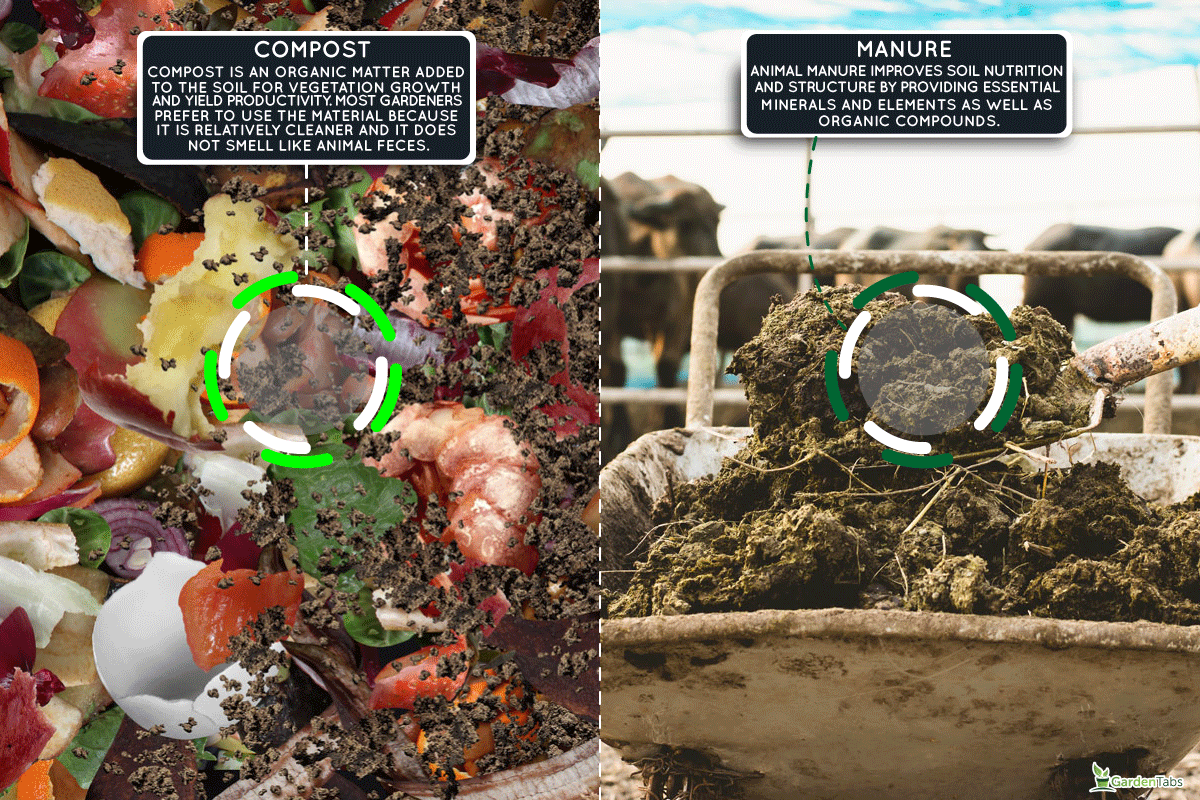
Compost Vs. Manure: Which Is Best?
Compost and manure can both be used as a source of nutrients for crops and other vegetation. Here is a breakdown of our research regarding the two to help you make an informed decision.
What Is Compost?
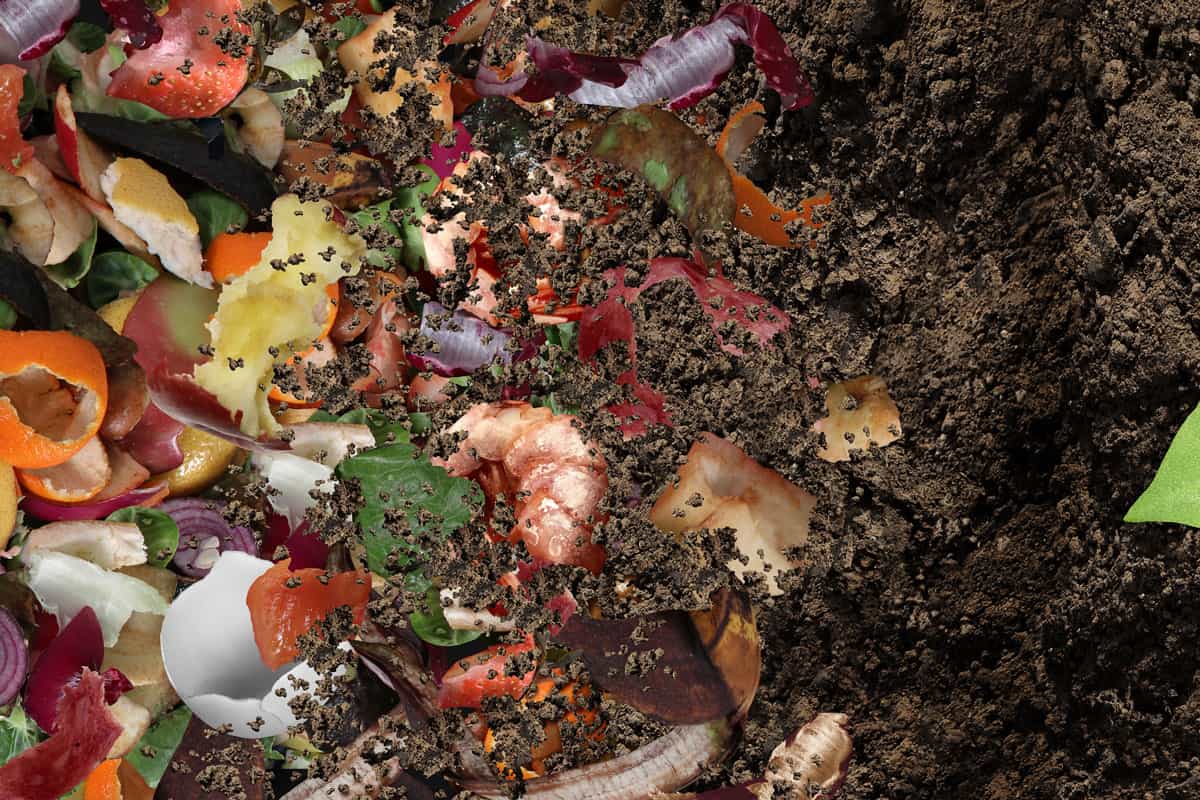
Compost is an organic matter added to the soil for vegetation growth and yield productivity. Most gardeners prefer to use the material because it is relatively cleaner and it does not smell like animal feces.
Check out R&M Premium Organic Compost on Amazon.
Compost Composition
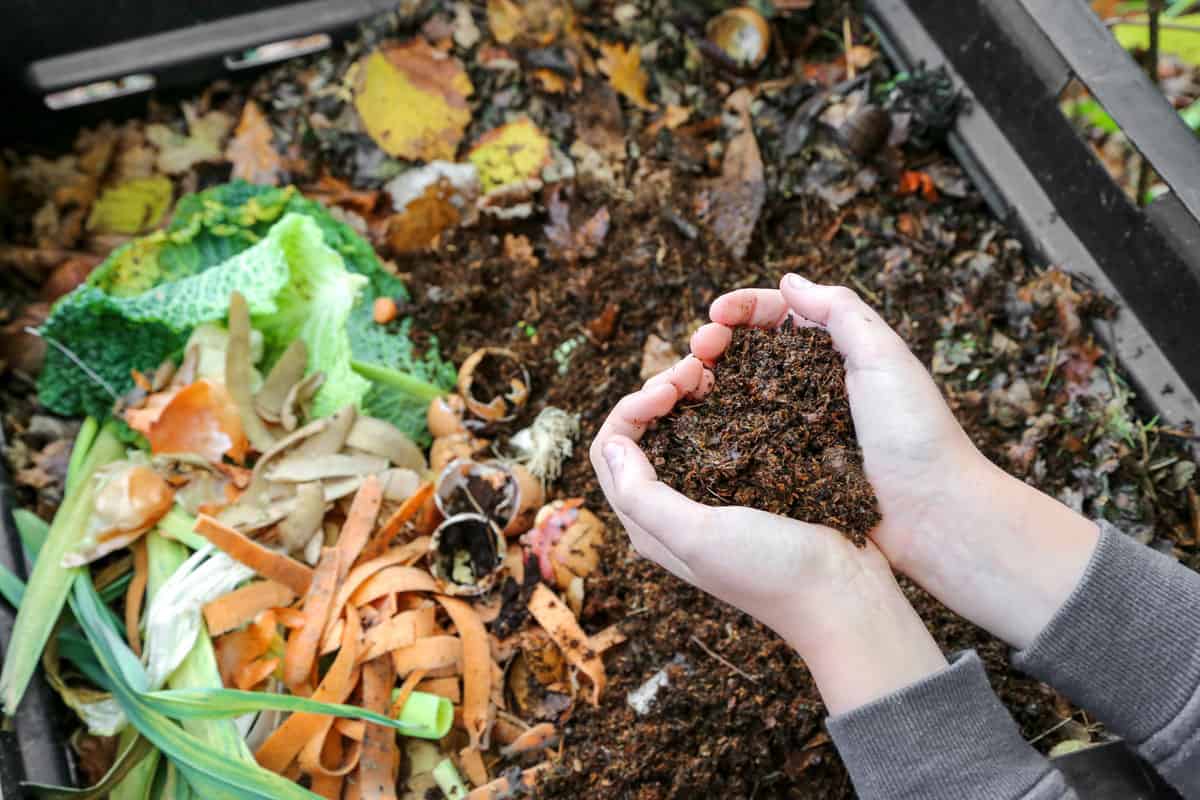
Compost is made up of four main components – organic materials, oxygen, pathogens, and moisture. "Organic matter" pertains to the natural ingredients present in the environment and is divided into two categories – browns or greens.
Brown or dry matter, including dried leaves, twigs, wood chips, sawdust, straws, and shredded newspaper are considered to be natural materials high in carbon content.
On the other hand, green or wet matter pertains to partially decayed or spoiled fruits and vegetables, organic tea bags and coffee grounds, eggshells, and fresh grass and plant clippings that have high nitrogen contents.
Oxygen, bacteria, and moisture are equally important in the decomposition process of organic matter. Nutrients needed by plants are then released into the soil to create an environment for healthy growth and development.
Preparing Compost
There are two kinds of compost – commercial or bagged and organic or homemade. The former can be used immediately after purchase, while the latter is required to undergo decomposition for several weeks prior to use.
Most gardeners and plant enthusiasts make their own compost because organic material can be easily found in backyards and gardens. During the initial preparation, it is advisable to use and mix both brown and green matter.
The decomposition’s time frame will depend on the type of organic matter, temperature, and the location where the compost is stored.
It is advisable to place your container away from a tree and near a water source to prevent the roots from going through the compost and to keep the material moist at all times.
Compost Application
Proper application is necessary. There are multiple ways you can apply your finished compost – mixing the material in your potting mix, sprinkling it on top of your garden bed, and spreading it at the surface of your vegetable plot.
It is usually recommended to use compost when it has fully decayed otherwise, acid and bacteria will cause considerable damage to the vegetation. When the organic material is fully decomposed, it emits an earthy smell and it should have a dark and powdery appearance.
You can however use unfinished compost in your garden bed or potting container as long as the vegetation’s roots are directly planted on the soil and not on it. Using it as mulch is perfectly safe.
Compost: Pros And Cons
Using compost has its fair share of advantages and disadvantages.
Pros
Vegetables grow best in slightly acidic to neutral environments that is why people generally prefer to use finished compost because it can neutralize soil pH. This organic material can also be added to the ground to amend soil that is otherwise too compact or loose.
Compost acts as a slow-release fertilizer that conditions the soil by gradually introducing nutrients that can last throughout the spring and summer months. Prolonged release of organic matter prevents plant roots from getting burnt.
Cons
Homemade compost cannot be used immediately since decomposing the medium can take weeks to several months, depending on the organic matter used during the initial preparation.
The entire process itself will take time and energy since you will have to manually mix the compost occasionally. Not only that, unfinished compost emits a foul smell. It has to be placed in a special container and a certain location away from your home.
While the medium attracts beneficial insects, a pile of unused compost also draws in pests that can otherwise destroy your crops. It is advisable to use a proportionate amount of brown matter (carbon) and green matter (nitrogen) to deter them away.
What Is Manure?
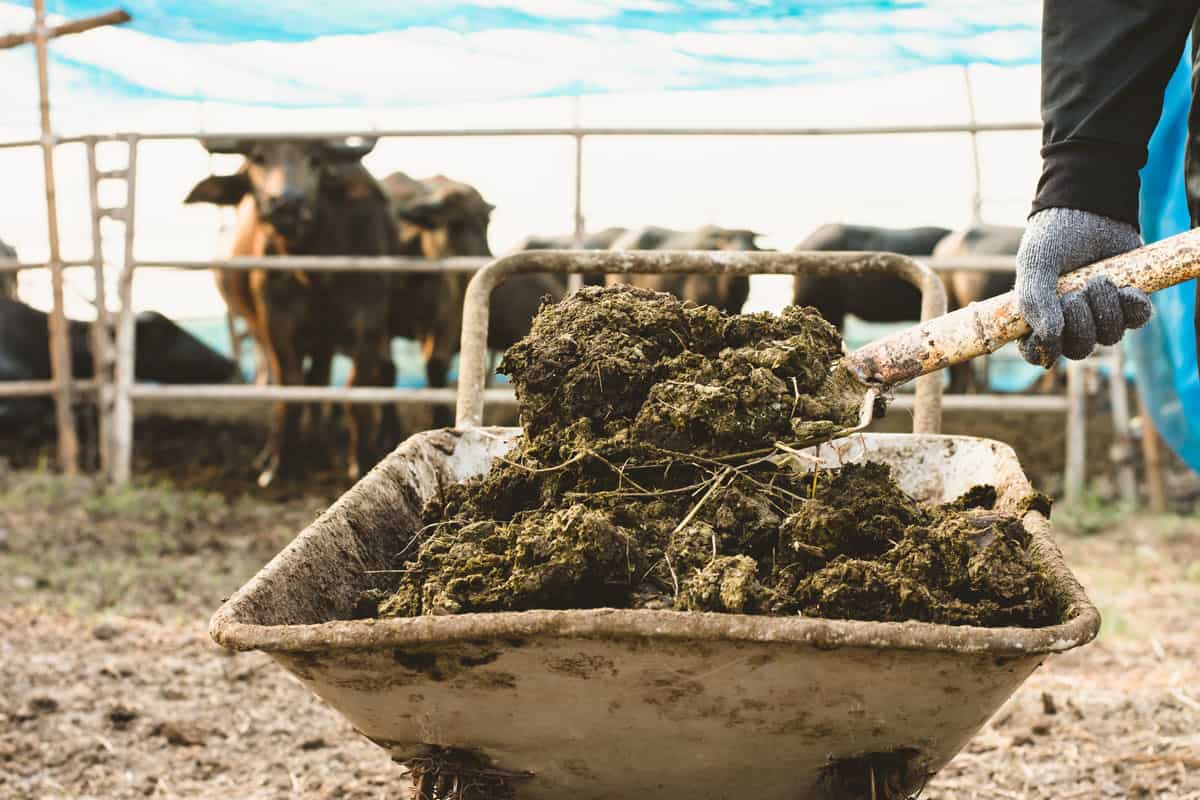
Manure is animal dung used to naturally and organically fertilize the soil to grow crops. It is an excellent source of nutrients obtained from plant-eating animals such as cows, horses, sheep, goats, and chickens.
It is the preferred form of amending the soil for large-scale farms due to the availability of the material, but the preparation and application process may entail time and special procedures.
Manure Composition
The amount and relative concentration of the minerals and elements found in manure varies depending on the particular animal it came from. Generally, however, all forms contain nitrogen, phosphorus, potassium, micronutrients, and organic matter.
The amount of nitrogen present in an animal's manure should be considered since any excess can harm the roots and cause plant stress. The dung of poultry animals contains the highest concentration and should be used sparingly. Cow manure possesses the least amount of nitrogen and can be used in most vegetables.
Preparing Manure
Fresh manure has high concentrations of minerals and contains pathogenic microorganisms and has to be processed before being applied as a soil amendment.
The material is introduced to a matrix or bedding of straw, hay, wood chips, or other plant byproducts, and water to undergo composting.
The ensuing chemical reaction would cause the mixture to heat up and cook over time, killing the pathogens and eliminating impurities. Once the mix takes on a homogeneous or uniform appearance, it can be tilled into the soil. The process may take between two to four months to complete.
Manure Application
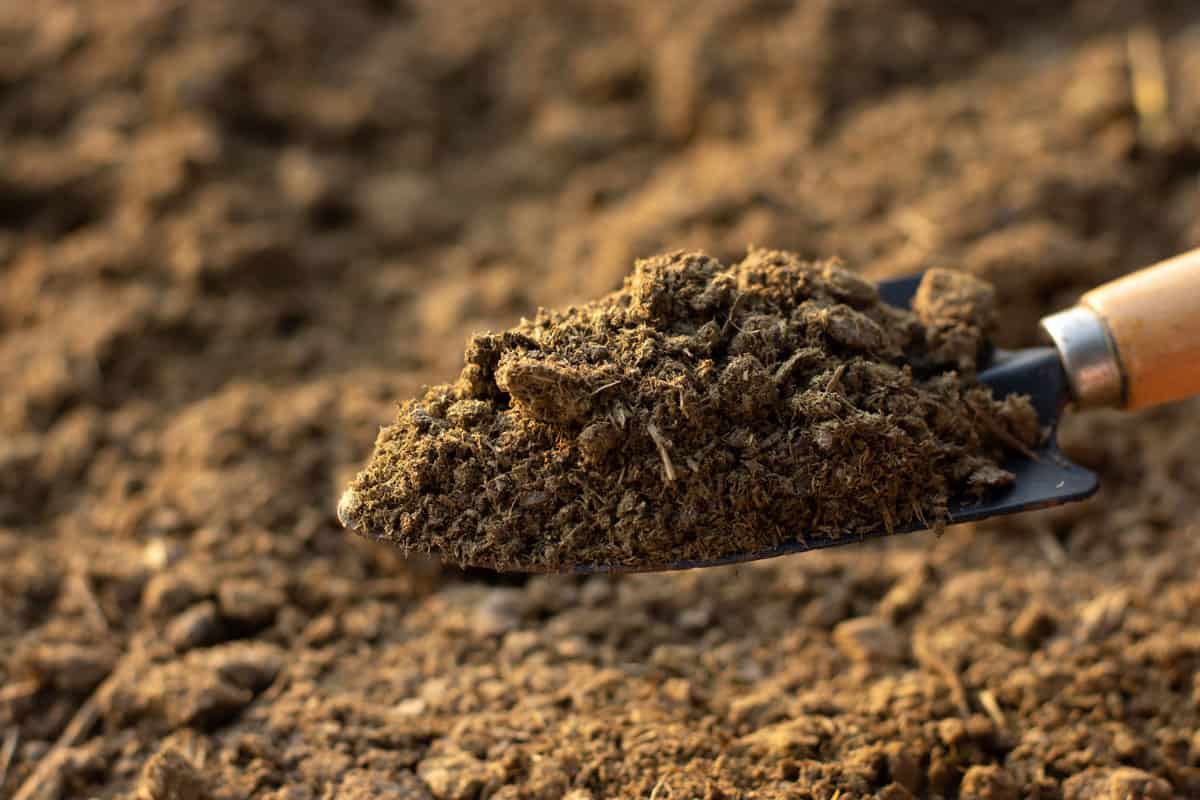
Composted manure is best applied by mixing moderate amounts into the soil before planting vegetable seedlings. Since the nutrients may take time to dilute and seep into the ground, one to two months of preparation is necessary before actual cultivation is done.
Check out Black Kow Composted Cow Manure on Amazon.
Generally, manure should be applied twice a year to maximize its effects and optimize yield, but certain adjustments have to be made depending on the animal source. Cow and sheep manure is a relatively mild fertilizer and may be used more liberally than chicken dung which is a much stronger amendment.
The type of vegetable produced would ultimately determine the type, amount, and frequency of manure application. A section of the post is included to address the matter.
Manure: Pros And Cons
Pros
Animal manure improves soil nutrition and structure by providing essential minerals and elements as well as organic compounds. The planting ground is enriched since the composition of dung features all-natural components.
Apart from water, oxygen, and carbon dioxide, the three most important elements that plants need to grow are nitrogen, phosphorus, and potassium. All forms of farm animal manure contain these essential minerals in slightly different concentrations.
Manure also encourages and attracts the growth of beneficial organisms like good bacteria and earthworms. The fertility of the soil benefits from this growth activity.
Cons
The preparation process is relatively complicated, especially for small-scale home gardeners. It would take time before the manure can be introduced into the soil and supply nutrients to your vegetables. If not prepared properly, microorganisms may contaminate the produce.
Some forms of manure, like chicken dung, contain high nitrogen concentrations, encouraging leaf growth. If manure is overapplied, the plant may not produce flowers and fruits.
Pathogenic or disease-causing microorganisms tend to contaminate the produce and could result in illness. Unless processed properly, it limits manure application on some vegetable products. It should not be used on rootstocks and tubers like carrots or potatoes.
For most home gardeners, manure can be difficult to obtain in considerable and practical amounts. Since the preparation process is complex, compost would be a better alternative.
Fresh manure emits unpleasant odors, especially during the composting process, which could bother family members as well as neighbors. It could also attract pests and carriers that can contaminate the area.
Which Vegetables Benefit More From Compost?
All vegetation thrives and develops well in finished compost, making it an ideal choice for a vegetable garden. The organic matter present in the planting medium does not pose a significant threat to your growing crops.
Which Vegetables Grow Best In Manure?
Vegetables require special care when planted in manure since not all vegetation can thrive using this medium.
Fruit-bearing vegetables such as cucumbers, peppers, and tomatoes can be grown in chicken manure. However, root crops and short-season leafy greens are sensitive to high NPK content and can be prone to contamination when exposed to manure.
In Closing
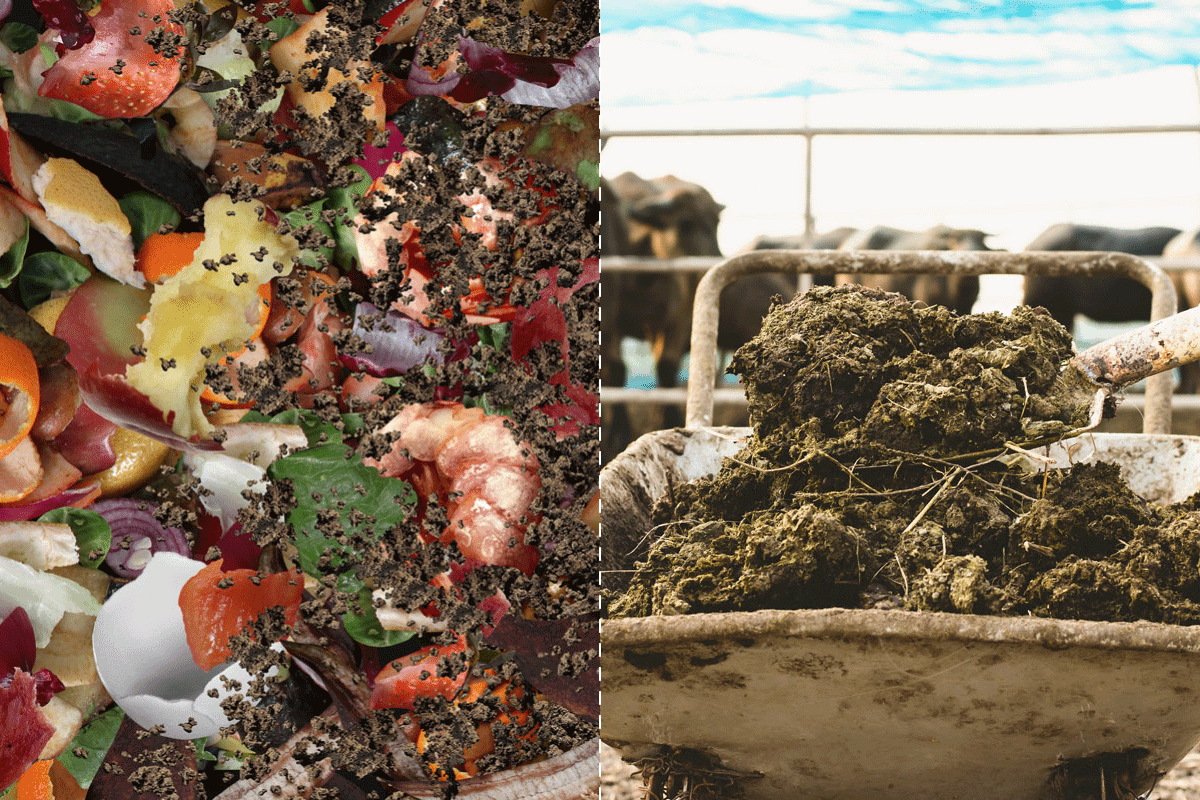
The best growing medium when it comes to a vegetable garden is finished compost and composted manure since both materials conditions the soil to allow for healthier growth and better yield productivity. We hope the article helped you make an informed decision. Happy gardening!
You might also find these topics helpful:
How To Harvest And Store Compost?
How To Compost Garden Waste At Home [3 Foolproof Techniques]


